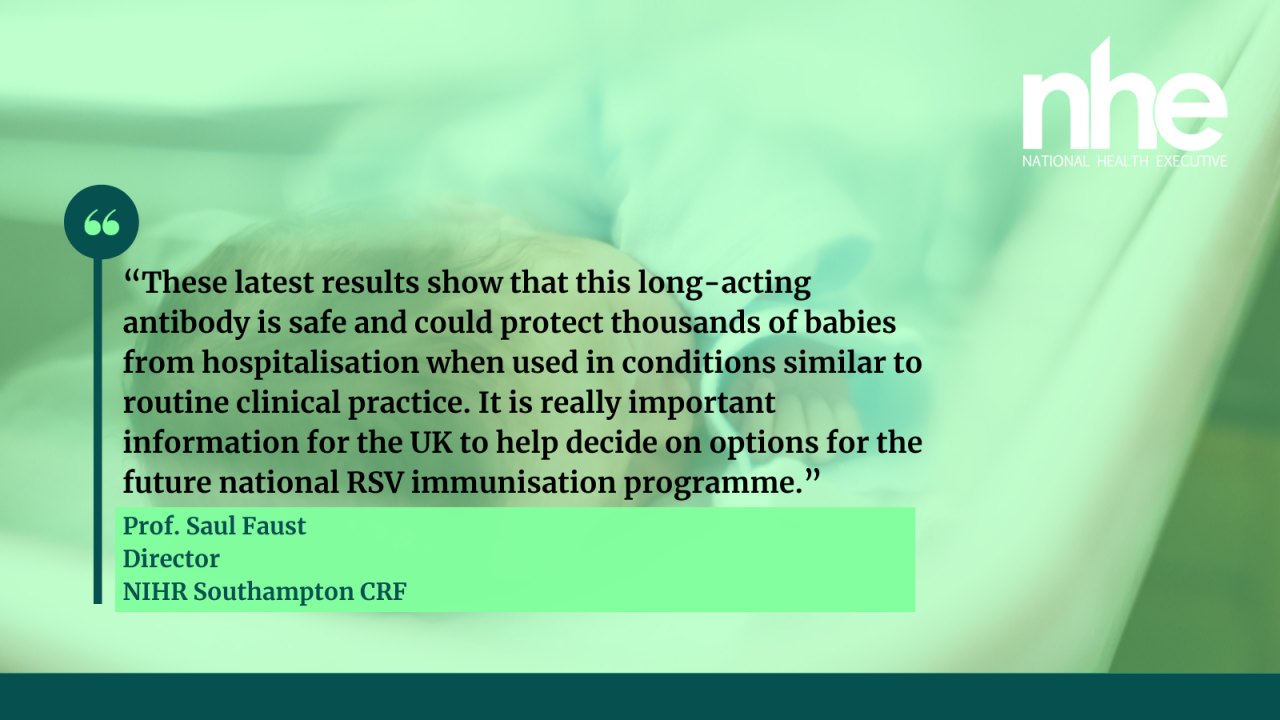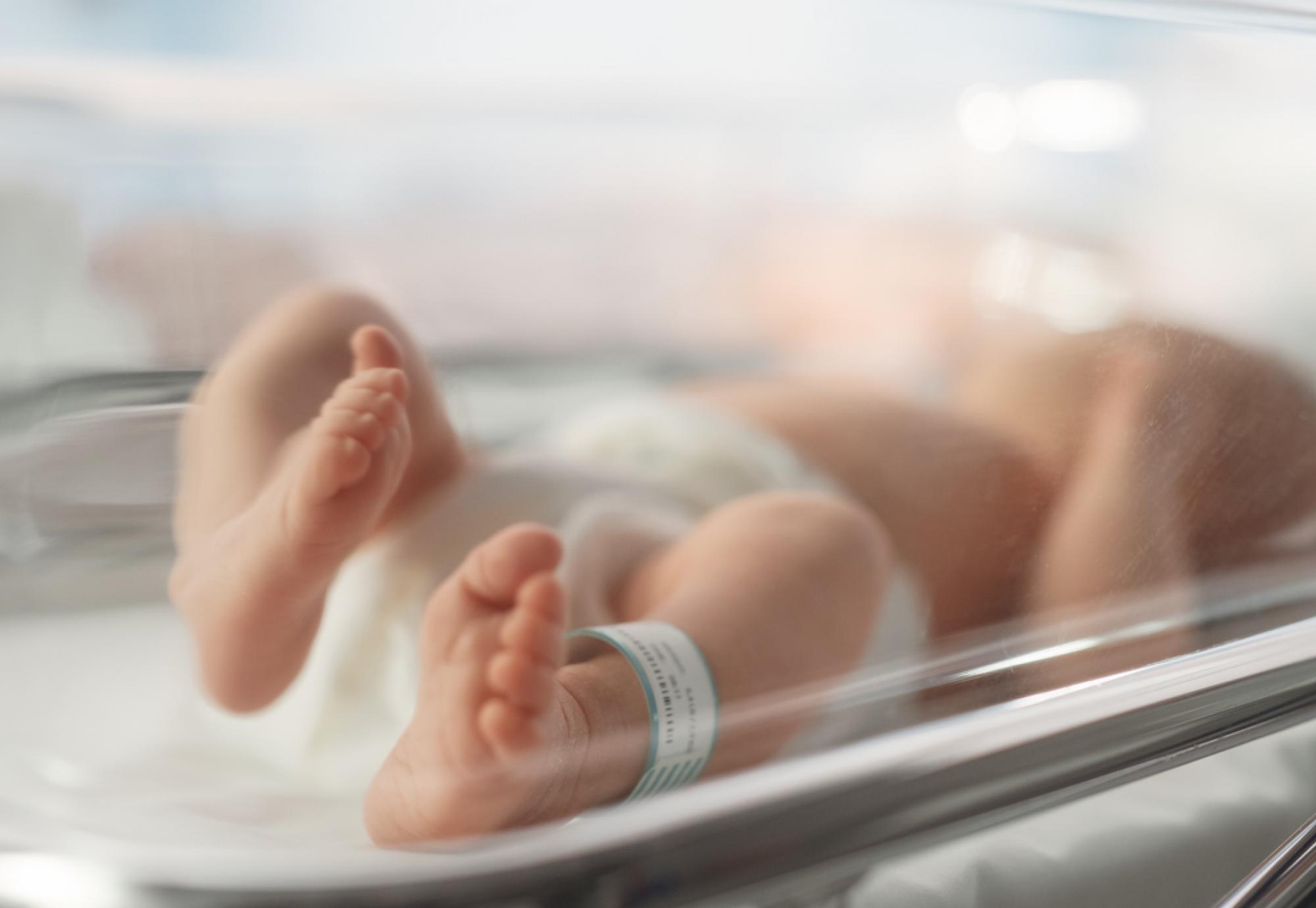A global trial has found that a new antibody treatment has the potential to significantly reduce baby hospitalisations.
An 80% reduction in hospitalisations can be achieved through protecting babies from a winter virus, with this coming thanks to the HARMONIE trial. The trial was conducted by the National Institute for Health and Care Research in collaboration with Sanofi and AstraZeneca, and involved 8,058 babies from the UK, France, and Germany. These babies were all under the age of 12 months and were approaching their first Respiratory Syncytial Virus (RSV) season.
As the leading cause of infant hospitalisation, RSV puts NHS resources under considerable pressure. More than 30,000 children under the age of five are hospitalised with RSV every year, with the virus also causing more than 20 and 30 infant deaths every year, this is due to some babies developing severe lung problems such as bronchiolitis and pneumonia.

NIHR Director of Strategic Industry Relationships Dr Matthew Hallsworth said:
“HARMONIE is a fantastic example of industry and NIHR collaboration. NIHR was instrumental in delivering this study in both secondary and primary care across the country, with the first global participant recruited in a GP site in Nottingham. In addition, this study was the first commercial study that involved an NIHR Associate Principal Investigator, a scheme which encourages in-work training, building on practical experience for healthcare professionals starting their research career.”
The trial found that immediate protection against RSV can be given after a single dose of the nirsevimab antibody, with the potential to ease RSV infant hospitalisations by 83%, helping to ease pressures that the NHS faces over the winter period. Approval for the treatment has already been granted in the UK, with it also being considered for a national immunisation programme.
Experts at University Hospital Southampton, University of Southampton, St George’s University Hospital and the University of Nottingham co-led the HARMONIE study, with it being supported by the NIHR Southampton Clinical Research Facility and the NIHR Southampton Biomedical Research Centre. Half of the babies that were recruited for the trial were found by the NIHR through its Clinical Research Network
Professor Saul Faust, Director of NIHR Southampton CRF and co-leader of the study, also commented:
“These latest results show that this long-acting antibody is safe and could protect thousands of babies from hospitalisation when used in conditions similar to routine clinical practice. It is really important information for the UK to help decide on options for the future national RSV immunisation programme.”
Image credit: iStock



















